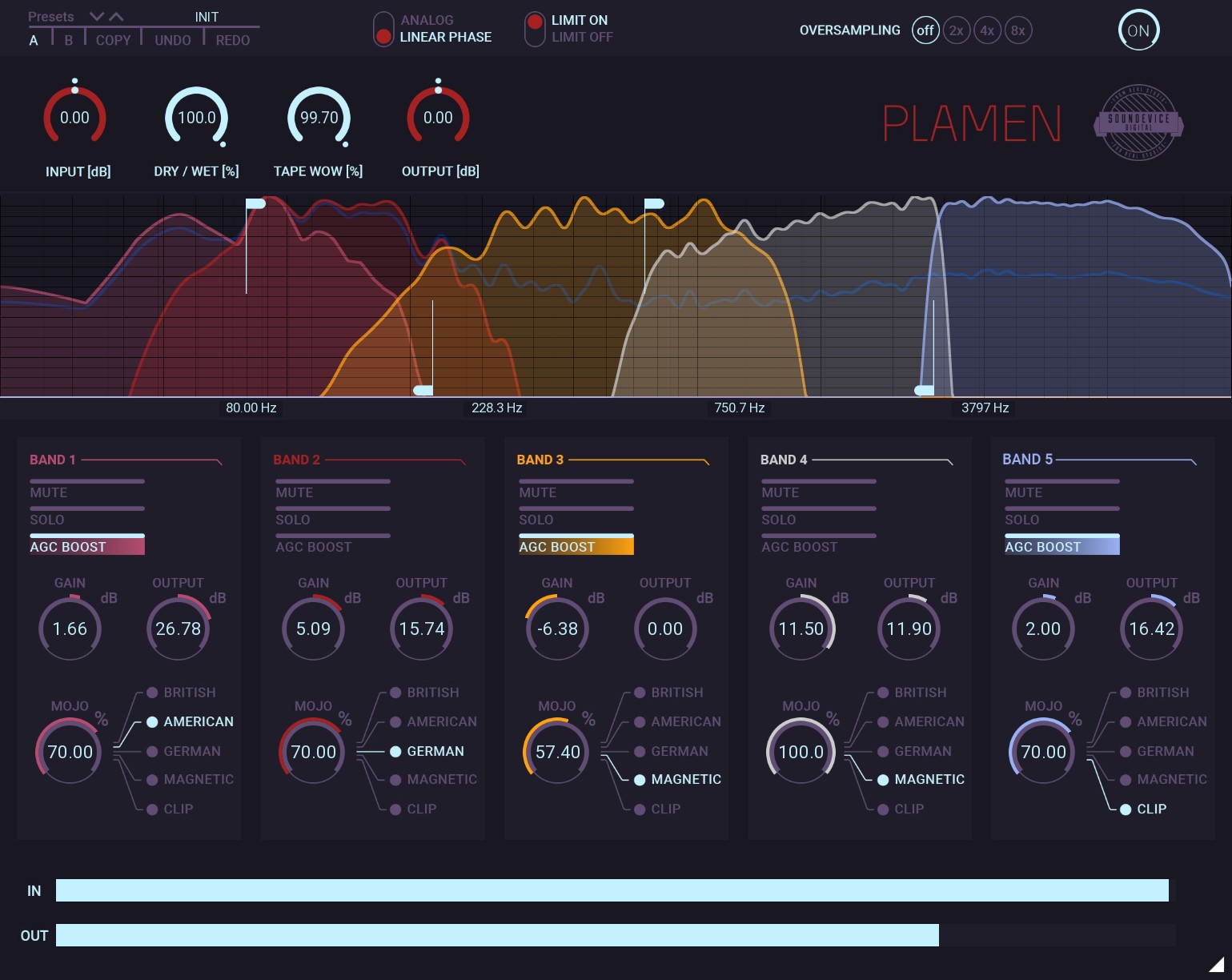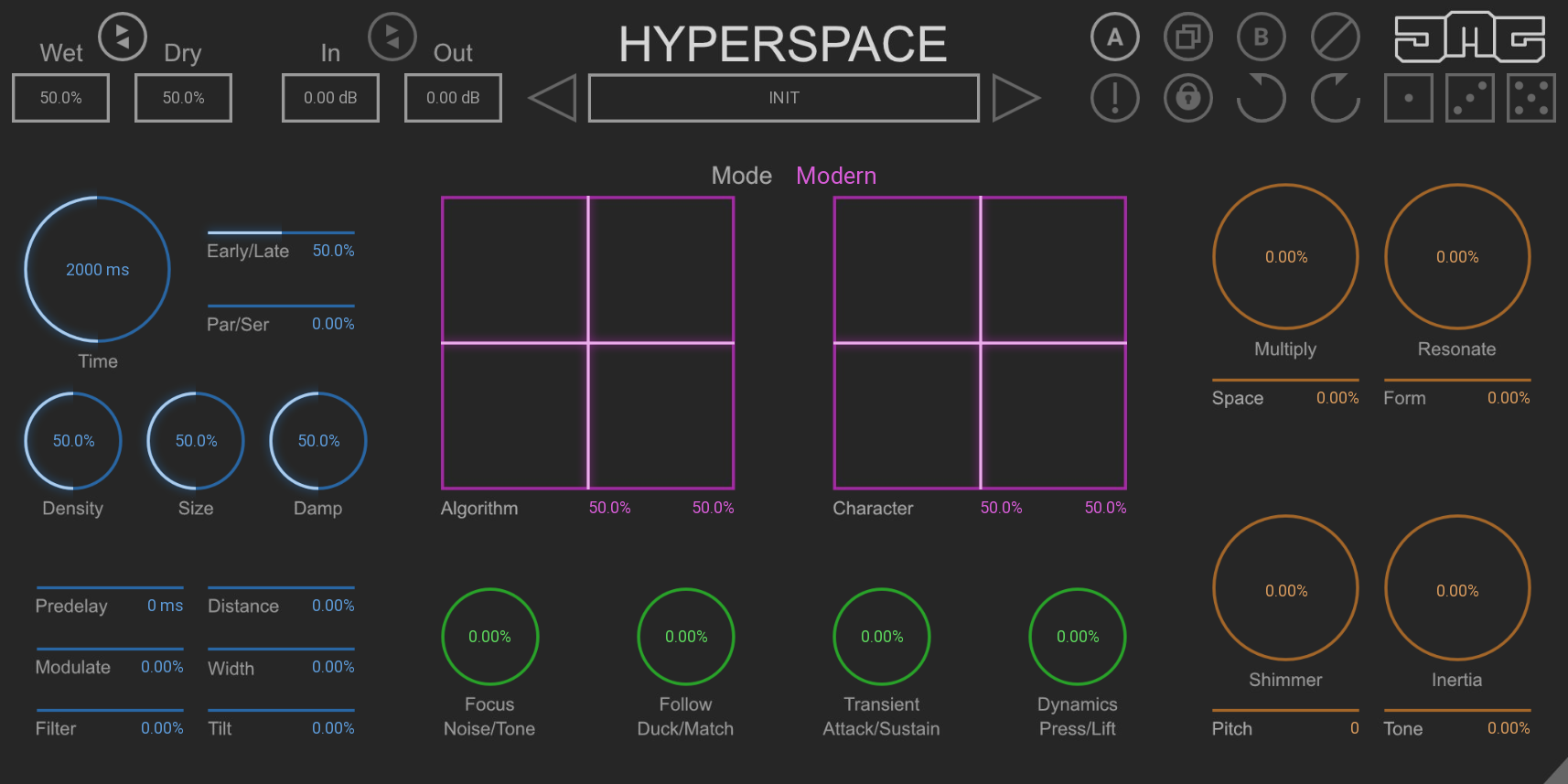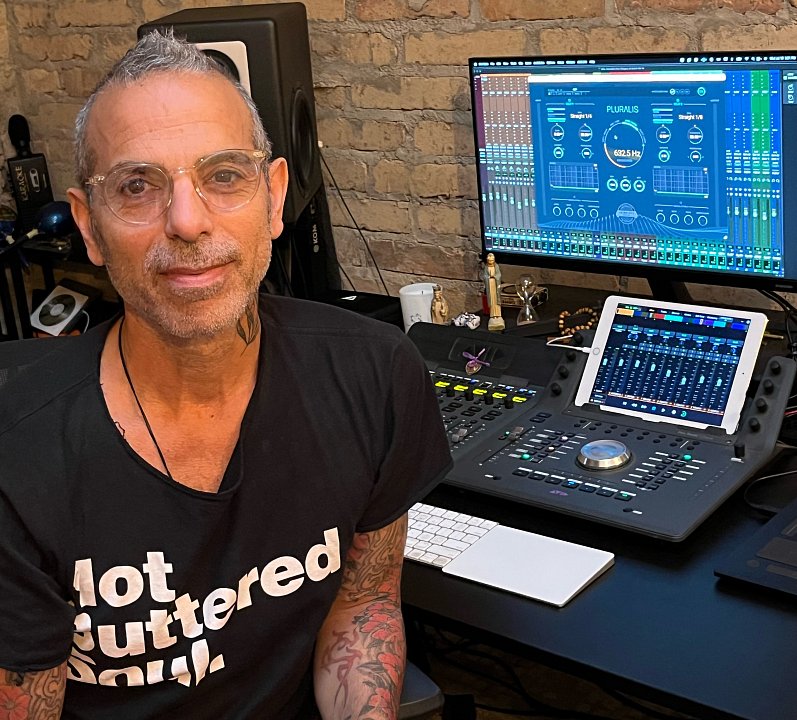Carmen Rizzo: I'm just always looking weird sh*t!
Interview with a UP Powered artist
Continuing this theme, Carmen has more recently relocated to Prague from LA, where he has scored a number-one world music album with an act called Didon. In this interview, he reveals his favourite projects and plugins and also has some great advice if you are just starting out in music or having trouble finishing tracks – "Are you making the song better? If not, move the f*ck on!"
How did you start out in music, Carmen?
I was lucky to have musical parents and was always around music. I played in bands and was pretty successful as a young kid, but I didn't want to do music; I wanted to be a pro baseball player! I went pretty far in that but ended up back in music, but I wanted to do more production and engineering. So I went to a recording school, the only one I could find in California, and I didn't learn anything! So, at 19, I moved to Los Angeles and worked at Westlake Studios. It wasn't so glamorous. I was the janitor in the morning and the runner or gopher during the day, and then at night, I would just hang in the studio when I was allowed to, and that was my education and what started my career.
So, did you take the traditional studio career route from there?
It was a bit more unconventional. Most people become a tape-op and wait for the break, but I embraced the technology, and that was my way. At that point in the 80s, the drum machine was introduced, and synthesisers were becoming more of a standard. Recording gear followed, and I embraced it. My first break was with Wendy & Lisa from Prince's band. They had just left The Revolution, and I was friends with [Prince engineer] Susan Rogers, who was my mentor. I became friends with Wendy & Lisa, and they needed an engineer and programmer, so I was fortunate to get my break. I also worked with [legendary keyboard player] John Barnes as his engineer and programmer, and that was the gateway to everything. I was the guy to call when people would say, 'he engineers, he mixes, he can play a bit, he can program a bit, he knows a Euphonix console or Sony 3324,' so I was getting calls. My other mentor at the time was Trevor Horn, and I met him through working with Seal. He'd get me in as I knew the gear he owned. Instead of hiring three people, he could just hire me!
What is your current studio setup?
Since I moved from LA, I couldn't bring everything. My idea of a studio is a creative space – I want the room to be a living instrument. I use Pro Tools as my main DAW, with Ableton as my second choice. I have an Avid S1 controller, and the dock is the hub. I also have an Ableton Push and Native Instruments Maschine and their S49 and S61 controller keyboards. I use Barefoot speakers, and I like to have a standalone table without a computer. I also have a Teenage Engineering OP-1 and OPZ, a cassette recorder, a Korg drum machine and Boss SP-303 Dr Sample.
What about software plugins. Do you have any favourites?
The new delay that they just came out from United Plugins, Pluralis, I really like. I use it a lot and love it. I like that they have re-approached the GUIs. I know we're all guilty of focussing on what something looks like, but in their case, this looks great. I know they also do a lot of plugins that model hardware, and there's a lot of competition in that world. I tend to go more for the eclectic plugins that are a little more off-grid, like the granular multi-effect ones where you can just do more things that other plugins don't do. I love the reverbs that they do, the way you can freeze it and pitch shift it in real-time. Not all reverbs do this, but I like to freeze reverbs, and then you automate the freeze or just record it as audio. I like how you can tweak a lot of the parameters once it has frozen to sculpt the reverb tailing away.

Now, also Plamen is a part of my recording & mixing set-up daily. It sets itself apart from other saturation plugins out there. United really did a great job on making a kind of hybrid EQ & saturation/distortion plugin that really allows you to carve a very unique sound without adding too much dirt. I usually start taking dipping bands out and not adding much that sculpts exactly what I'm hearing.
Do you have any specific production tricks using these plugins?
I discovered the Hyperspace reverb, and because I am always looking for creative long-tailed reverbs, I use the section called Creative Supermassive, a preset bank that allows you to go really big. My favourite part, which I love, is the ducking feature. You can create almost gating reverb effects that have a beautiful sound. I also use Mirror. This is a little best-kept secret that basically reverses the audio in real-time and has filters and reverb, which on drums gives such a beautiful pumping effect. It is crazy cool!

You have worked with many artists, but what is your philosophy with any project you take on?
I always say: 'Am I the right person for this gig?' That should always be your mantra. I've often been in positions where I am not the right person. Could I do it? Sure, but am I right? That's why I didn't pursue film composing, as I want to be in the position that I am the right person for the job. There are very few film composers who make music that really is their signature sound.
What is your approach when collaborating with someone for the first time?
Again, it's 'Am I the right person for the job?' and usually, how I approach something is: 'Let's get our feet wet and see if it's going to work'. It's almost like a relationship, a romance, you kind of dance a bit. But I don't want to sell it to someone who says 'I'm what you've been waiting for'!
Which have been your favourite projects?
It's never the biggest names. I've worked with Michael Jackson and Coldplay and on Ray Charles records, but I'm a little more proud of the more eclectic projects as those are often harder or much more difficult to make and get. So things like Ryuichi Sakamoto, Huun Huur Tu, A.R. Rahman, Grant-Lee Phillips and Michael Nyman just interesting projects where people might not know the artist or the music, but they are just different, you know?
What advice do you have on finishing a track?
It's almost like a security blanket. When you are not done with a track, you can always say, 'I'm still working on it'. You're leaving that door open. But once it's done, that door is shut, and there are no more excuses. So for me I ask myself if I am just adding things or taking them away, is it making the song better? And if it isn't, move the f*ck on!
What is your view on AI in music?
Well, because I'm a technologist, I have always embraced technology and always see it as a tool. You can't fight it and will somehow have to embrace it, and at some point, everyone will find that sweet spot where it helps you.
What is your advice to people wanting a career in music?
It starts with your talent, as part of the problem is that people are gaining success from popularity and not from merit. It's all smoke and mirrors. For example, you can be an influencer on social media, and gain popularity, but are you any good? That is subject to opinion. So, it has to start with your skill set and your talent. The second thing is you might have a strategy of how to do it [get successful], but you have to be open-minded and move sideways to move forward. And today, nobody cares where you are from. You can have success living in a little village in Romania or somewhere, and your music might find an outlet, but you have to be open-minded. Following that old method like 'I'll show up in Hollywood, and it will come to me'. Good luck with that!
What are your current musical plans?
I have a side project called Didon, which is a North African/Middle Eastern record with a wonderful artist friend of mine, Meriem Ben Amore. We had great success with this record [Tunisian Tale] – it was number one on the world music charts for six weeks. I've also been working with Dhani Harrison, George Harrison's son, and I'm hoping that will manifest into something. I'm just always looking for eclectic stuff and weird sh*t!


